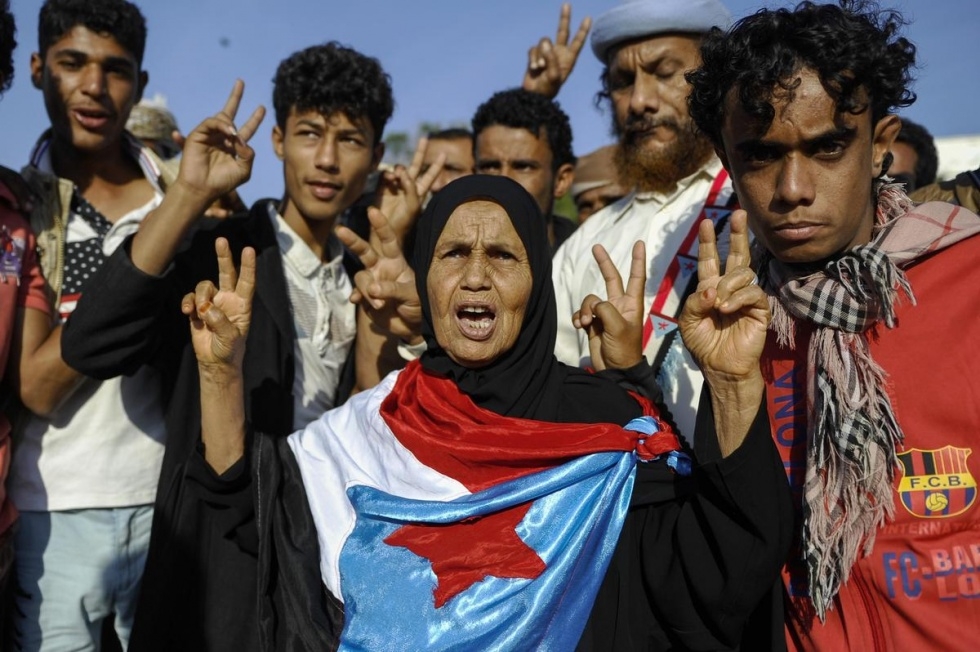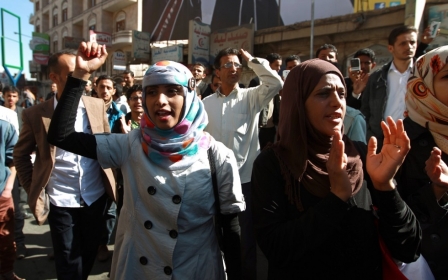Crisis talks begin in Yemen but walkouts mar process

Yemeni political factions resumed UN-brokered talks on Monday aimed at resolving the country's political crisis but one group quickly walked out, underlining the difficult path ahead.
The Nasserite pan-Arab party left the talks saying it had been threatened by a powerful Shiite Houthi militia that grabbed power last week.
"We will not return to the table of negotiations," Nasserite party chief Abdullah Nooman told reporters.
He went on to criticise the Houthis for holding talks based on the "constitutional declaration" under which they took over the government on Friday.
The Houthis have also "threatened to take measures" against the Nasserite party and al-Islah, a Sunni Islamist party, a local offshoot of the Muslim Brotherhood, whose supporters have battled the Shiite militia.
Yemen, which is riven by tribal divisions and awash with weapons, has been engulfed in crisis since veteran strongman Ali Abdullah Saleh was forced from power in 2012 following a bloody year-long uprising against his rule.
The country is also battling an al-Qaeda insurgency and facing a separatist movement in the formerly independent south.
The crisis escalated after the Houthis last month took control of key government buildings, prompting Western-backed President Abedrabbo Mansour Hadi to tender his resignation.
The Houthis on Friday said they had dissolved parliament and created a "presidential council" to bring the country out of crisis.
UN envoy Jamal Benomar has warned Yemen is at a "crossroads" and urged political leaders to "take up their responsibilities and achieve consensus".
When announcing the resumption of talks on Sunday, he warned that time was running out for a "peaceful solution".
But militia leader Abdel Malek al-Houthi insisted at the weekend that the Houthis would only take part in talks centred on their constitutional declaration, and demanded that their rivals "rectify their policies".
The Houthis first seized Sanaa in September after sweeping into the capital unopposed from their northern stronghold. Despite a UN-brokered deal, they have refused to withdraw their fighters from the city.
The government takeover by the Houthis has drawn international condemnation, with UN chief Ban Ki-moon calling on Sunday for Hadi to be restored to power.
“The situation is very, very seriously deteriorating, with the Huthis taking power and making this government vacuum. There must be restoration of legitimacy of President Hadi," Ban said over the weekend.
Saudi Arabia on Monday joined an ever growing number of countries by denouncing the "coup". The regional Gulf Cooperation Council GCC, of which Saudi Arabia is part, had already issued a strongly-worded denouncement over the weekend.
New MEE newsletter: Jerusalem Dispatch
Sign up to get the latest insights and analysis on Israel-Palestine, alongside Turkey Unpacked and other MEE newsletters
Middle East Eye delivers independent and unrivalled coverage and analysis of the Middle East, North Africa and beyond. To learn more about republishing this content and the associated fees, please fill out this form. More about MEE can be found here.




